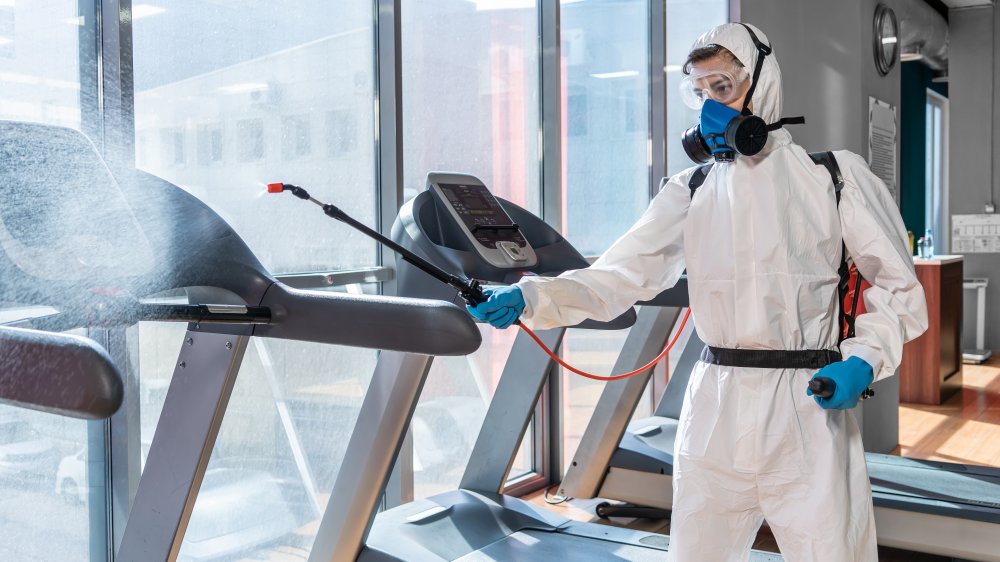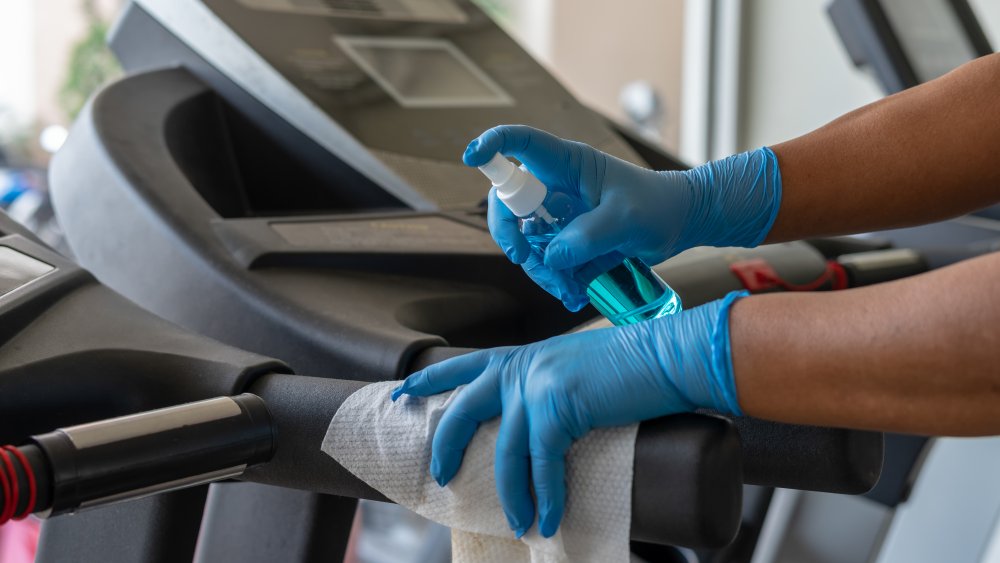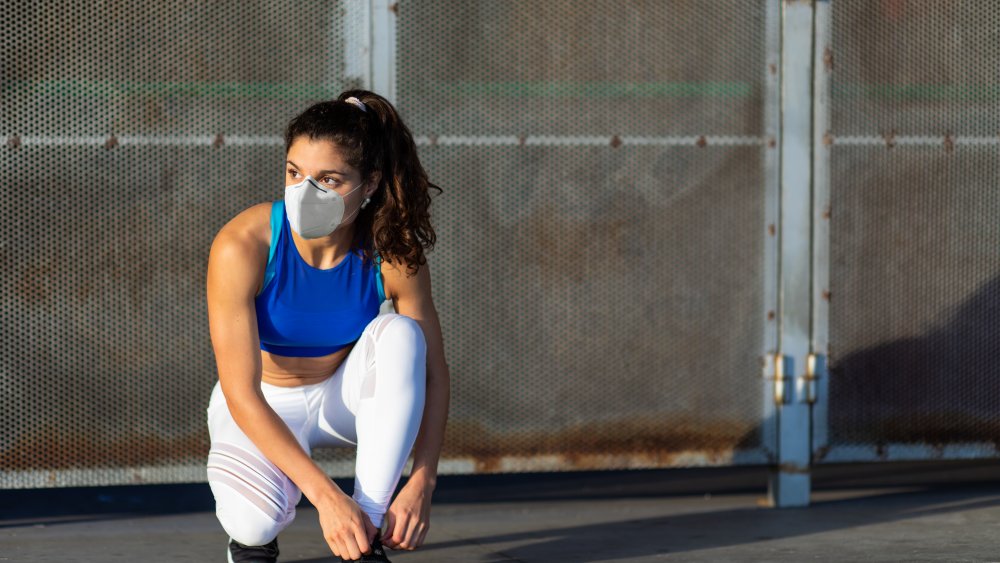Here's Why You Shouldn't Go To The Gym Right Now
It may have been a while since you worked out using proper weights or fitness machines, but if you think now is the time to head back to the gym, health experts warn that you may be moving too quickly — especially if your return is based on a study that was recently released by the International Health, Racquet, and Sportsclub Association (IHRSA). The group worked with a partner, fitness member tracking company MXM, to examine check-in data involving 50 million members across fitness facilities, including Planet Fitness, Anytime Fitness, Life Time, and Orangetheory Fitness. Together, they found that only a "nominal" 0.002 percent — or about 1,155 cases — had tested positive for COVID-19. The IHRSA further adds, "There is zero evidence that the positive cases originated in gyms themselves."
The findings are currently being used by fitness clubs around the country to prove that they are ready to accept members safely.
Experts say the study on gym safety is flawed
But research and health experts are questioning these assertions, because they say the methodology might be distorting the findings. The Washington Post reports that there isn't much data that examines coronavirus spread in gyms, because states don't actually have efficient contact-tracing systems in place. And any data that the gyms might have either come from state health departments or from people who have come down with COVID-19 and know about it. University of Chicago Medicine's chief infectious-disease epidemiologist Emily Landon says: "I'm not sure how many people would call their gym and be like, 'Hey, I think I went out to eat at a restaurant, and I also went to the library, and I also worked out in your gym, and now I have covid. I don't know that that's happening."
Another potential source of data error was identified by research psychologist Paul J. Lavrakas, who tells the Washington Post, "Possibly the biggest reason to discount the accuracy ... of the data that MXM has assembled is that such data are very likely to be incomplete and biased in the direction of underestimating the prevalence of COVID transmission at health clubs."
Lavrakas also questions the fact that a company that works closely with gyms was asked to conduct the survey. ""Maybe the most damning thing here is ... no independent, credible third party was hired to do this study," he says.
You may want to avoid the gym and stick to an outdoor or at-home workout
We understand why gyms are anxious to get back to business. When the pandemic first broke out, they were flagged as "high risk environments" (via The Washington Post). That's because you'd be working out in a densely populated space, for an extended amount of time, in an area that may or may not be well-ventilated. As a result, fitness companies like Gold's Gym, 24 Hour Fitness, and Town Sports International (owner of New York Sports Club) have had to file for bankruptcy protection (via NBC News).
And while it is especially critical to stay fit and healthy at this time, infectious disease experts like Kaiser Permanente's Saadia Griffith-Howard says you need to think carefully before you set foot in a gym at this time. "You have to make your own assessment of how risky it is based on knowing your medical situation and whether you are someone who's at high risk for an infection," she says (via NPR).
Perhaps until there is more information, it's best to continue working out from home or outdoors for as long as the weather permits.


